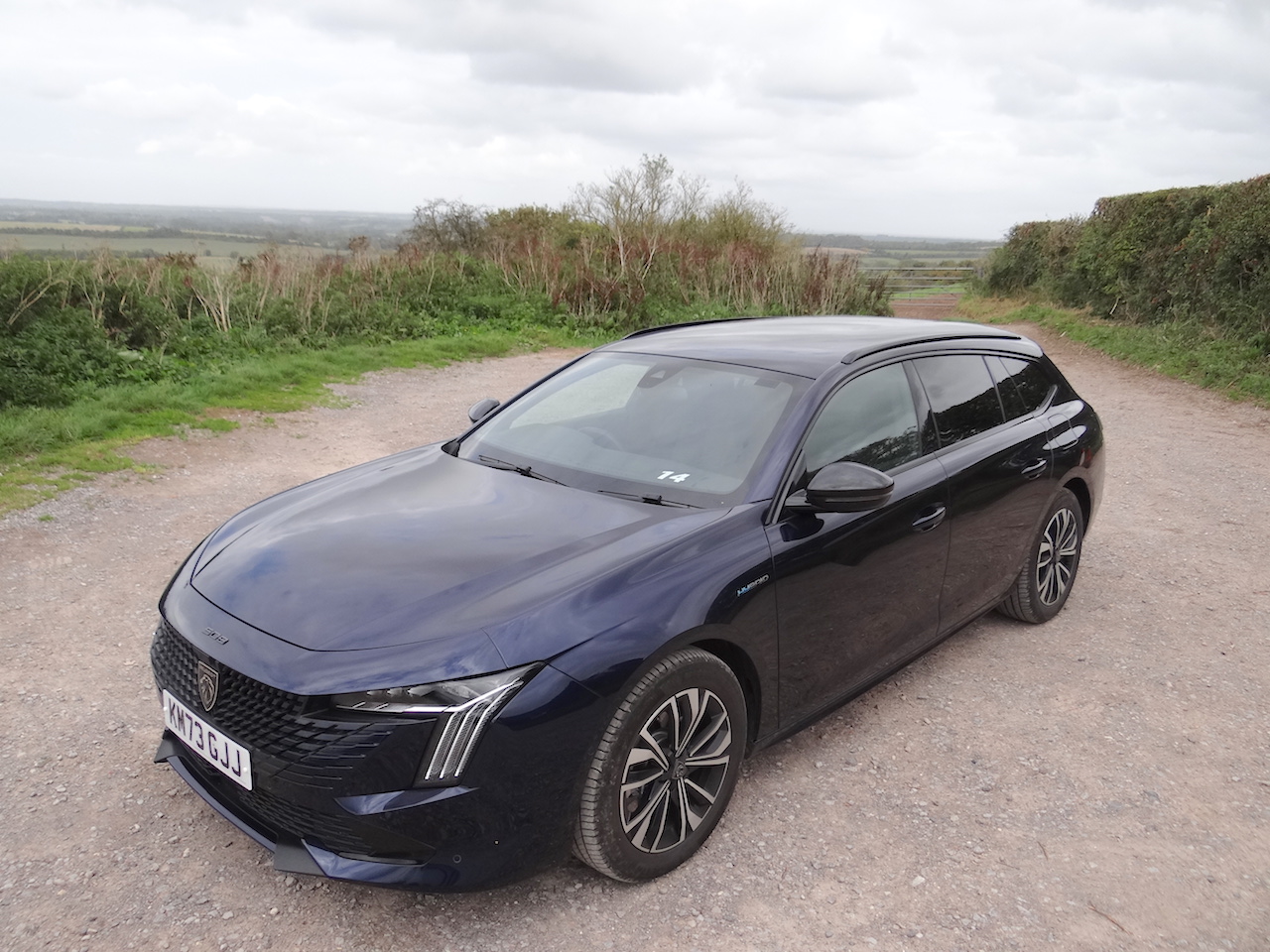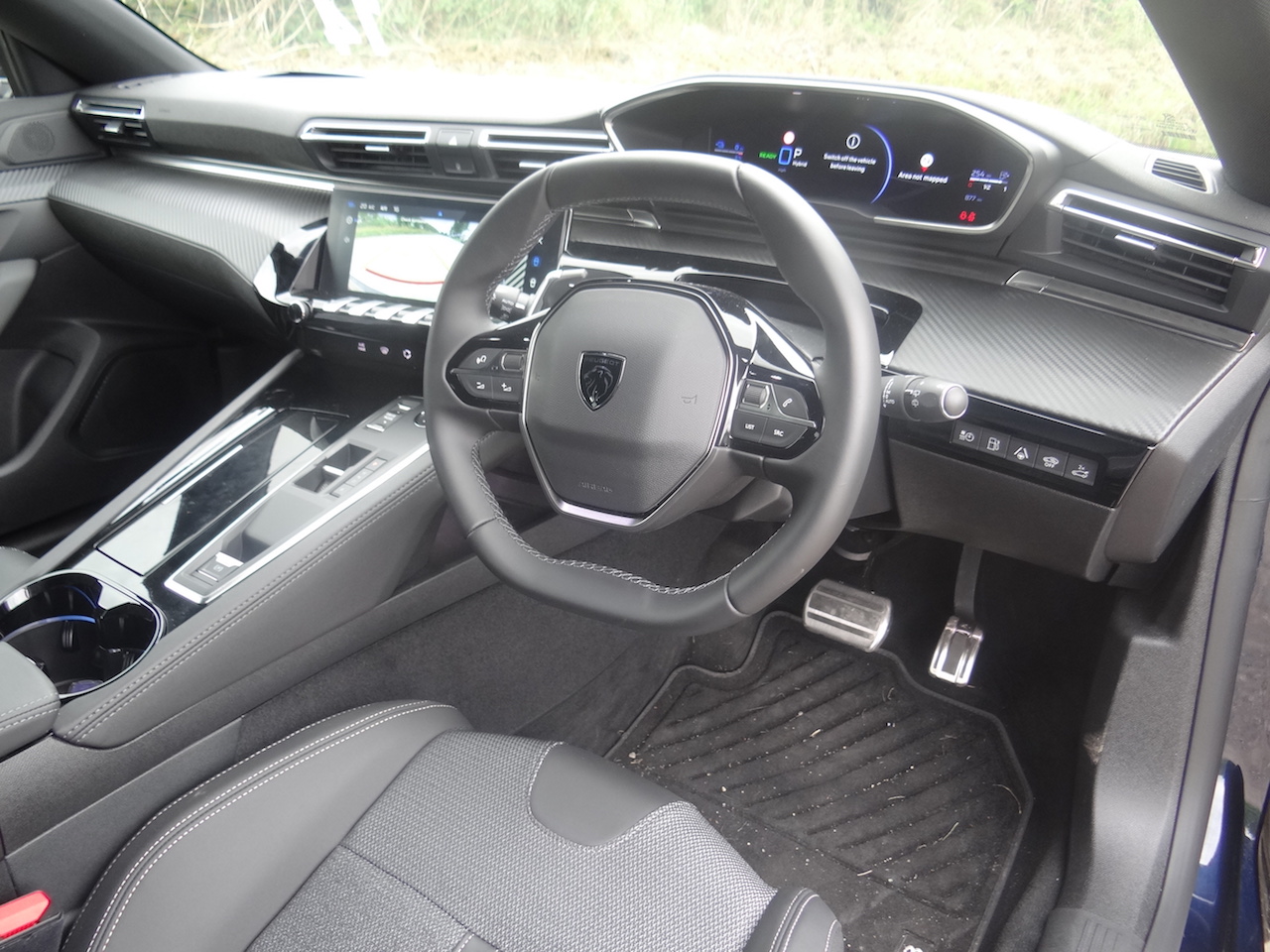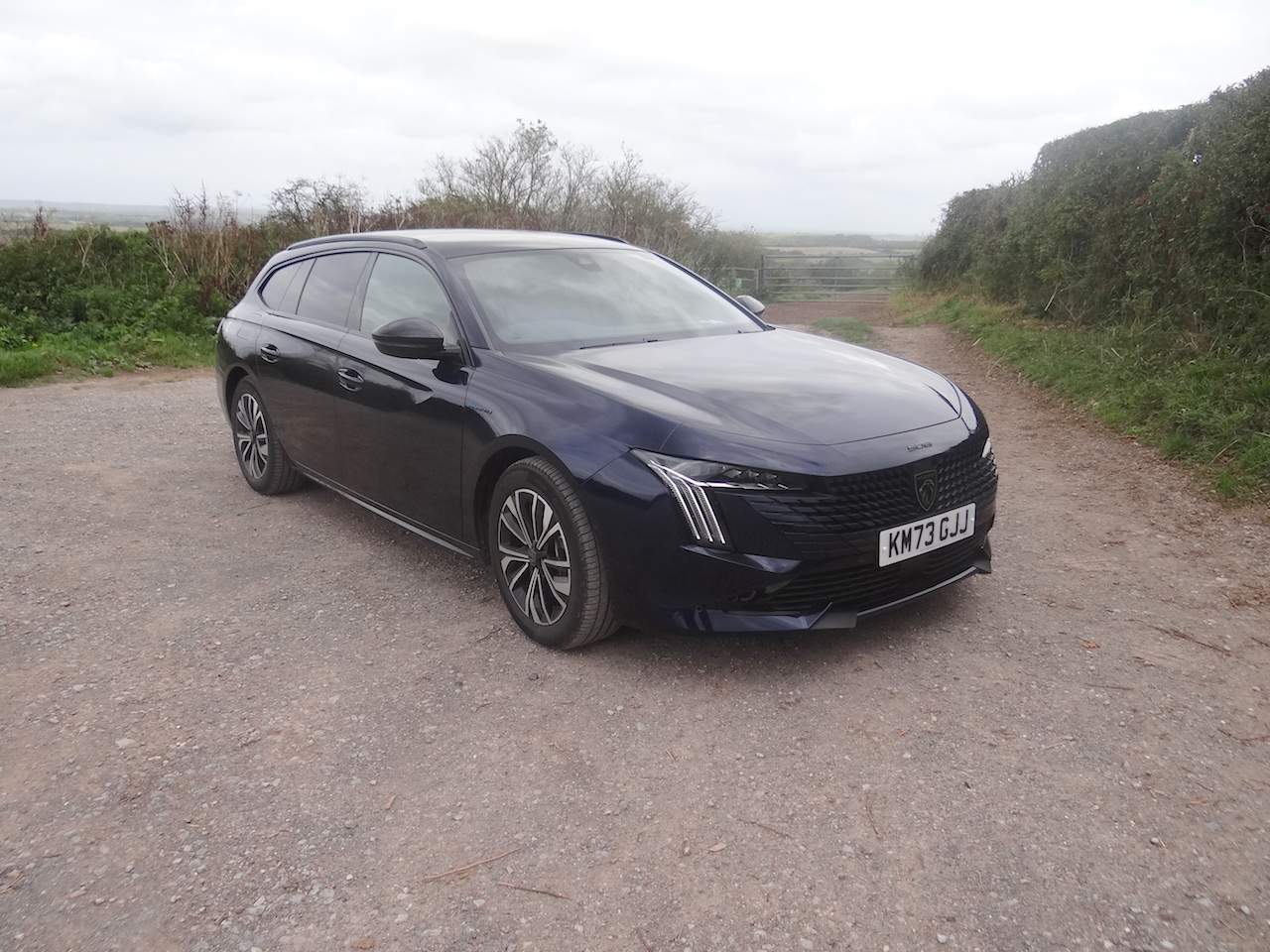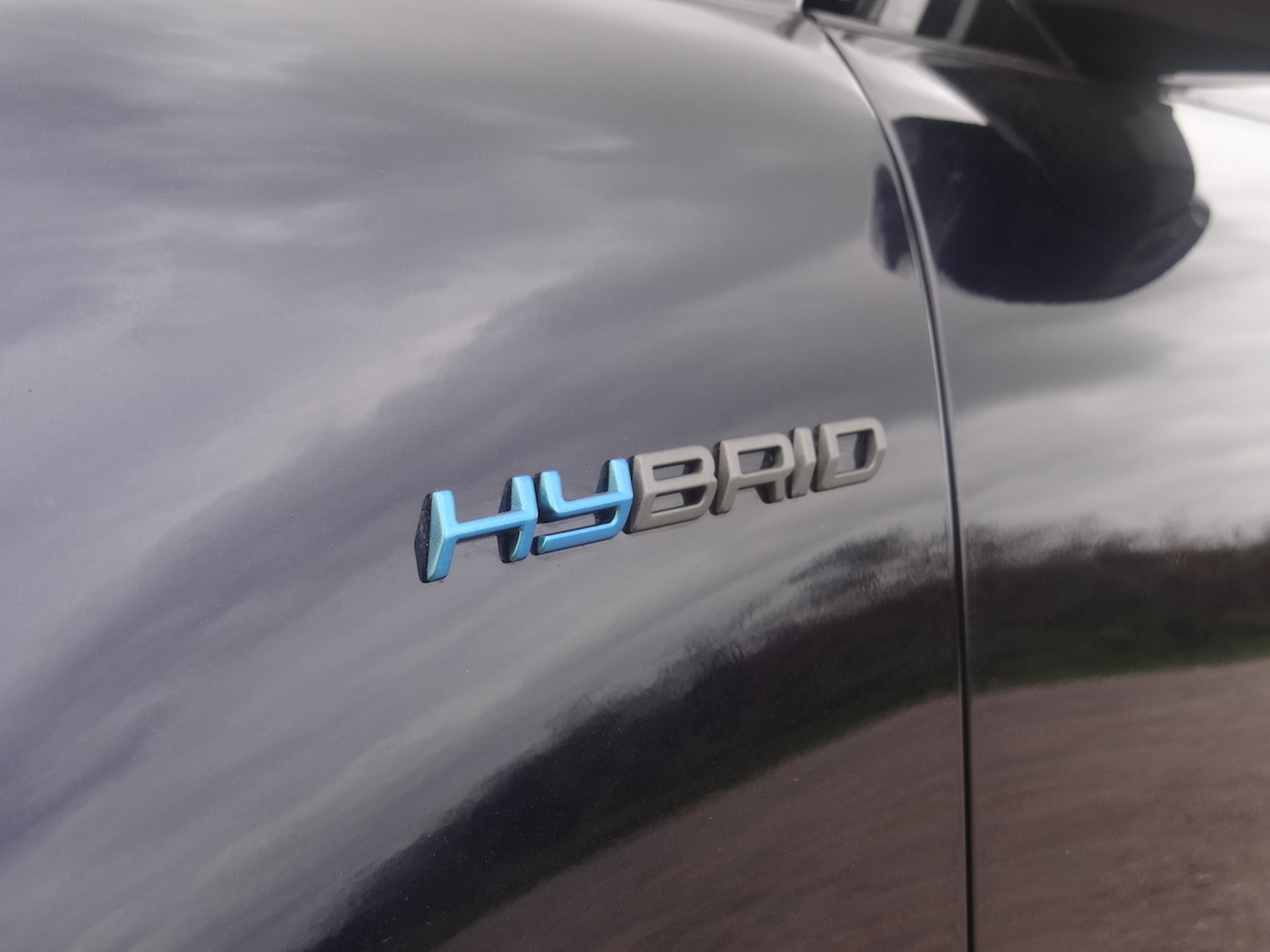Chris Adamson reports after test driving this hybrid conventional estate car…
(All words and photographs by, and copyright, Chris Adamson).
Large bulk carrying sports utilities are gradually coming to dominate the UK new car market; most makers have quietly begun to abandon traditional saloons, hatchbacks and estate cars in favour of the versatility and appeal of the SUV.
Consequently, a conventional estate car is now hard to find if that is your vehicle of preference – one manufacturer who can still offer you the travelling salesman’s favourite is Peugeot who have a choice of options in their 508 SW (station wagon) line-up.
This inevitably now includes plug-in hybrid versions (identified by the twin filler caps either side) that claim combined fuel consumption figures of between 194 and 274 mpg.
Visually the latest 508 SW is a big vehicle stretching out to almost five metres long and nearly two metres wide. Fortunately, Peugeot’s design team has given it a low sporting stance with lots of soft curves to disguise the bulk so that it doesn’t look utilitarian or cumbersome and it fits into what used to be described as the executive estate car class.
The overall sleek profile (even on the entry level Allure trim) is highlighted by slim-line front and rear lighting, a sporting colour coded mesh grille with lowered black gloss bumper diffuser, aluminium roof rails, gloss black pillars and two-tone alloy wheels.
This sense of sporting aspiration continues into the cabin where surfaces are covered in good quality materials (including carbon fibre), the plastics are soft and tactile, and the mix of colours and textures (including up-market stitching) give it that executive appeal.
The supportive and generous front seats should be good for long distance journeys and passengers all-round will be just as comfortable with more than sufficient head and leg room in the rear, even with a taller driver occupying the front seats.
A large and extensive luggage area boasts 530 litres (18.72 cu.ft) of load space up to the parcel shelf and while this isn’t the best in class it is generously proportioned and very usable – there is plenty of room for even a large canine to hop-up into the back over the relatively low sill entry point without the need to drop down the 60/40 split rear seats.
Those rear seats fold down to extend this to a commodious 1,780 litres (62.86 cu.ft), measured to the roof). Again, this isn’t top of the class and could be better if the rear seats folded completely flat – the reason for this is that the battery pack (which comes with an eight-year 100,000-mile warranty) is located under the rear seats.
For driver convenience, the clear 12.3-inch instrument panel (part of the Peugeot i-Cockpit configuration) is compact and provides all the essential information required and it can be tailored to the driver’s preference – putting the essential information as a priority.
A second dash mounted tablet style 10 inch touch screen is used to access and operate features such as the infotainment and climate control as well as vehicle operating systems, and there are plenty to choose from on this well specified trim level. The installation of more conventional short-cut piano keys for accessing information is welcomed.
On the Road:
To qualify for the hybrid badging, Peugeot matches a turbocharged four-cylinder 1.6 litre petrol engine with an 80 kW electric motor, powered by a 12.4 kWh battery and giving a total maximum power output of 225 bhp.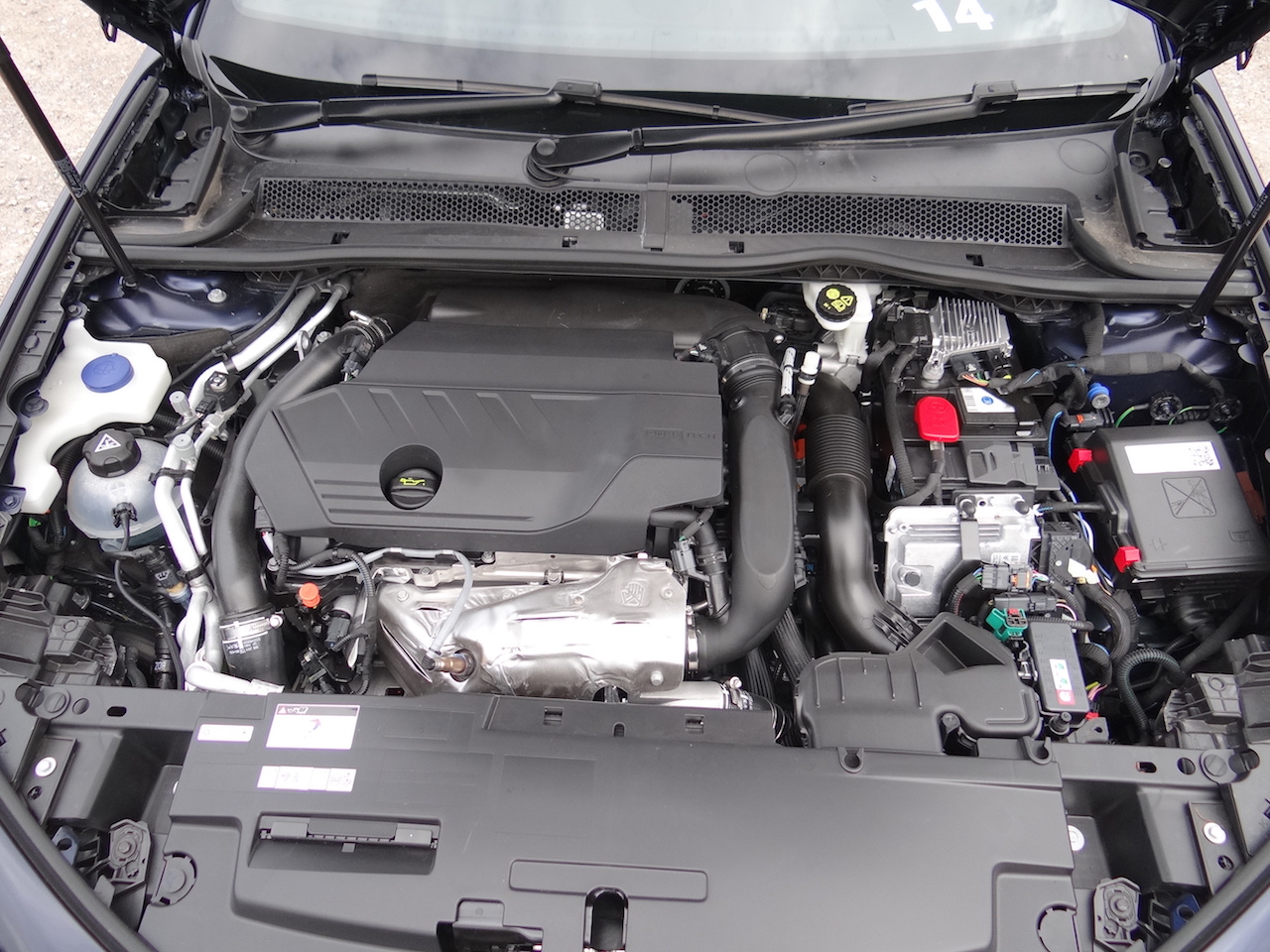
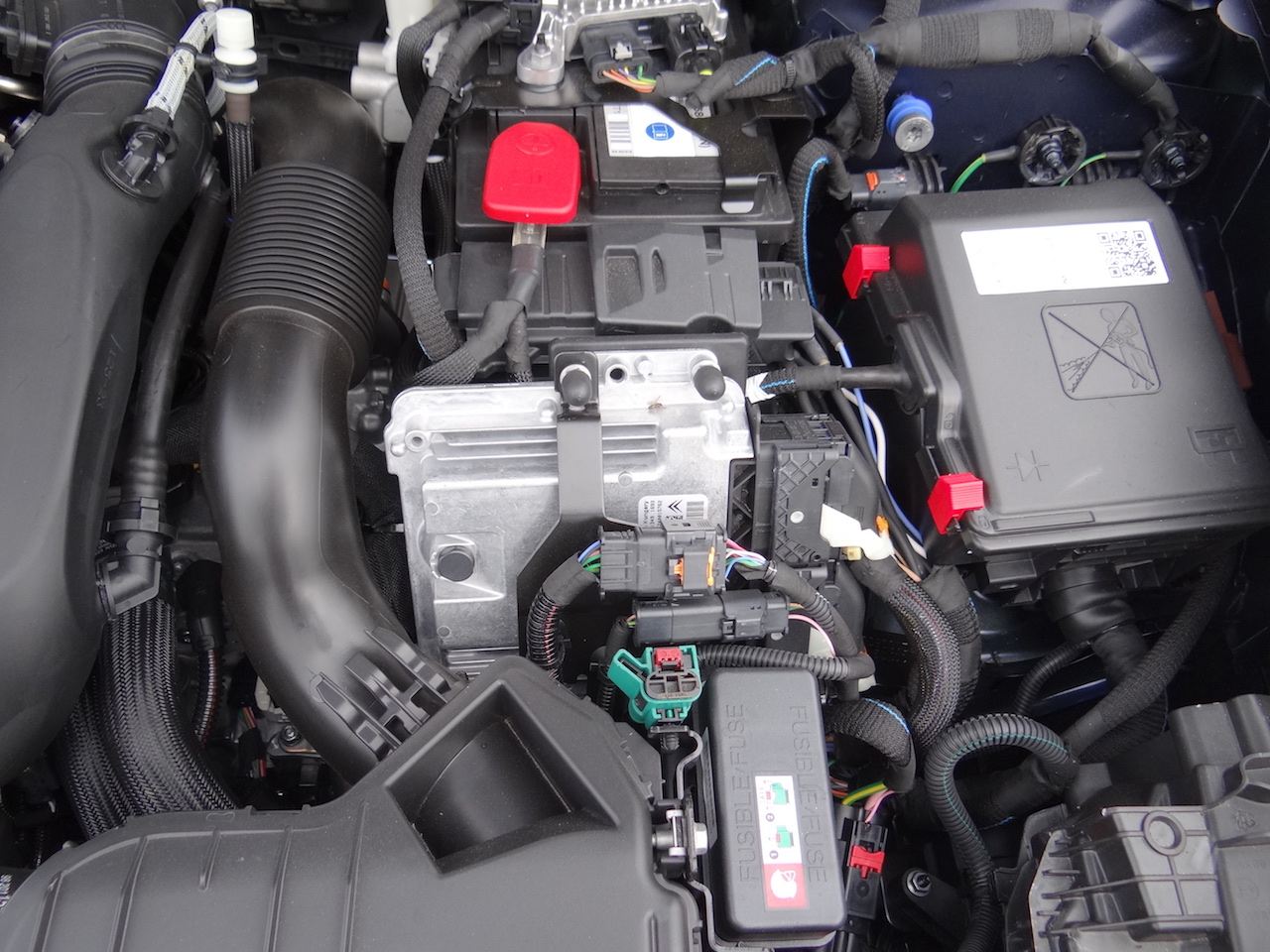
The efficiency of this combination is dictated by the driver’s choice of driving modes – that’s between Sport, Hybrid and EV Electric.
In EV mode only, Peugeot claims between 34 and 42 miles should be possible – but more realistically, depending on driving style and ambient conditions on the day, drivers should only allow for about 35 to 40 miles.
Re-charging using a conventional 7.4 kW AC wall box connected via the plug-in cable should take about one hour 40 minutes according to the makers, which is rapid enough to make regular EV running a distinct possibility.
There is a fast charge option which does the job in less than an hour and you can even top-up using a domestic three pin 240 W socket – but allow five and a half hours for this.
The claimed average fuel consumption is put down at 235 mpg (that’s including all electric running into the equation) but once the battery is used up motorist should expect closer to 50 mpg with extra careful management of the throttle and over 40 mpg with a normal driving style.
The other important headline figure is the CO2 emissions rating of 27 g/km and all the inherent tax advantages this brings over its petrol only rivals such as starting with free first year VED and £170 after that.
With the electric motor on board Peugeot replaces the usual combustion engine torque converter with a wet-plate clutch for the eight-speed automatic transmission, which means an additional 60 Nm (44 lb.ft) of torque.
The 508 SW is also available with a four-wheel drive version where an 83 kW motor is linked to the rear wheels, adding 110 bhp.
With the petrol and electric motors working together, the 508 SW packs a bit of a punch under sustained acceleration getting to 62 mph in under eight seconds and even on battery power will exceed the legal speed limit.
Delivery through the transmission isn’t the slickest I have tried but it does well to match driver requirements to its abilities.
In handling terms, the 508 SW feels like a big car, there is no getting away from the length of this vehicle but using the latest Stellantis group EMP2 common modular platform it is relatively light while at the same time delivering a taut chassis.
The multi-link suspension provides a comfortable and forgiving ride quality although the long wheelbase does feel many of the unrelenting British pot holes; thankfully there is the option of adjusting the damper settings between Normal, Comfort and Sport.
Electric assisted steering is adequate if not the fastest responding and there is always the sensation that this is a long vehicle to get around a corner, accompanied by a touch of oversteer.
VERDICT
If you don’t want the high-rise characteristics of an SUV and your motoring needs are more suited to a traditional estate (primarily I would say dog owners) then the 508 SW Hybrid, while not being the largest carrier in the sector, offers a very sensible, comfortable, and potentially very economical alternative.
Wheels-Alive Tech Spec:
Vehicle: Peugeot 508 SW Allure Hybrid
Engine: 1596 cc four-cylinder petrol engine & 80 kW electric motor
Transmission: Eight-speed automatic
Power: 225 bhp
Torque: 360 Nm (266 lb.ft)
Performance:
0 – 62 mph: 7.9 seconds
Top Speed: 149 mpg (sport mode) / 84 mph (electric)
Fuel Consumption (Official Figures):
Combined: 193 mpg – 275 mpg
CO2 Emissions: 27 g/km
Price (On the Road), as tested: £46,415
